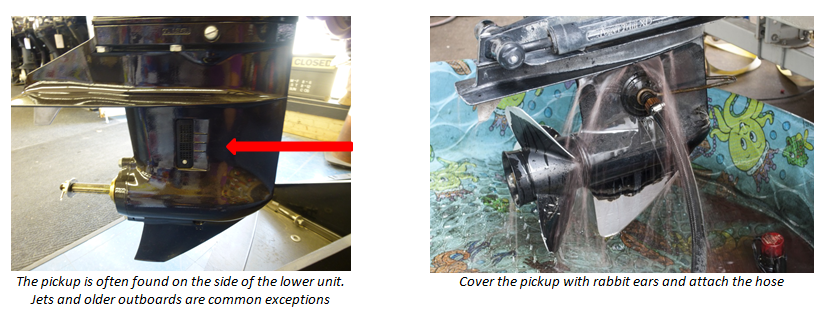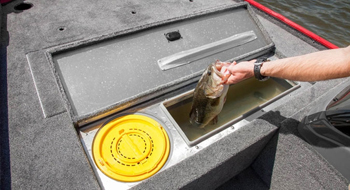Displaying items by tag: bilge
Boat Maintenance - 3 Spots Not to Miss
Somethings are out of sight, out of mind - a boat's accumulation of bacteria, grease, or odor should not be one of those things. There are a few covered parts of a boat that really need to get some attention in order to keep your boat in good shape. Often, the places you can't see are the places that could use the most TLC; like the live well, bilge, or gunk that collects in your engine. Cleaning and maintaining the cleanliness of your boat and outboard can be easy and worth it.
Maintaining your engine
All maintenance serves the same purpose; it helps avoid damages while also getting the most out of your outboard's performance. When it comes to boats and motors, a shiny exterior is nothing without a shiny interior. Cleaning your engine is important regardless of what kind of water you are cruising through. De-greasing the inside of your engine and removing all the gunk and dirt should become an annual part of your end-of-season care. Using an anti-corrosive, like WD-40, helps remove all the possibly troublesome grime from your engine.
Once you have a sparkling engine interior, flushing out your outboard with fresh water helps maintain a healthy engine. If you're cruising through salt water, flushing is recommended after every use. Left over salt sitting in your engine can be harmful. Even when going through fresh water, if it is especially sandy or dirty, flushing after use is a good precaution. Flushing is also helpful because it helps your engine cool down. With a set of engine ear muffs and a garden hose, flushing out your engine can be quick and painless. Attach ear muffs to your lower unit so they're covering the pickup, attach the garden hose to the side of the ear muffs, and start flushin'. With the engine and garden hose both running, the water is sucked up by the fuel pump and through the engine. By flushing regularly and keeping up with consistent engine maintenance you can prevent issues before they get too major.
Maintaining your bilge & livewell
The bilge of your boat can have an odor, collect bacteria, or rust and corrode the equipment that sits there. With that being said, it's clear why keeping your bilge clean is advised. Bilges can get dirty and not all sections of the bilge are easy to reach, but cleaning all of the areas you can will make a huge difference.There are different options for bilge cleaner, but going with a biodegradable cleaner can have advantages. Products that aren't biodegradable can harm the water; they require careful use. With a biodegradable cleaner you don't have to be quite as cautious. After applying the cleaner, let it soak before scrubbing: why not let the cleaner do some of the work for you? Letting it sit and soak gives it a chance to de-grease, making the rinse easier.
How many times have you caught a fish, put it in the live well, took the fish out, and gone about your business? Probably atleast a few times. How many times have you given your live well a good scrub-a-dub? Hopefully at least a few times. Fish aren't clean by any means, so chances are your live well isn't either. Probably one of the easiest things to clean, the live well only requires a little scrubbing with anti-bacterial soap. After washing, especially before boat storage, make sure your live well is dry. Storing a boat with a wet live well, even clean moisture, can easily grow bacteria and reverse your hard work.

A nice boat can help ensure weekend plans, fresh fish dinners, and bragging rights. A dirty boat, on the other hand, can potentially lead to odorous boat rides or hefty mechanic bills. No doubt keeping your boat and outboard clean will definitely pay off. Stop by or call Van's Sport Center with any questions or boating needs!

